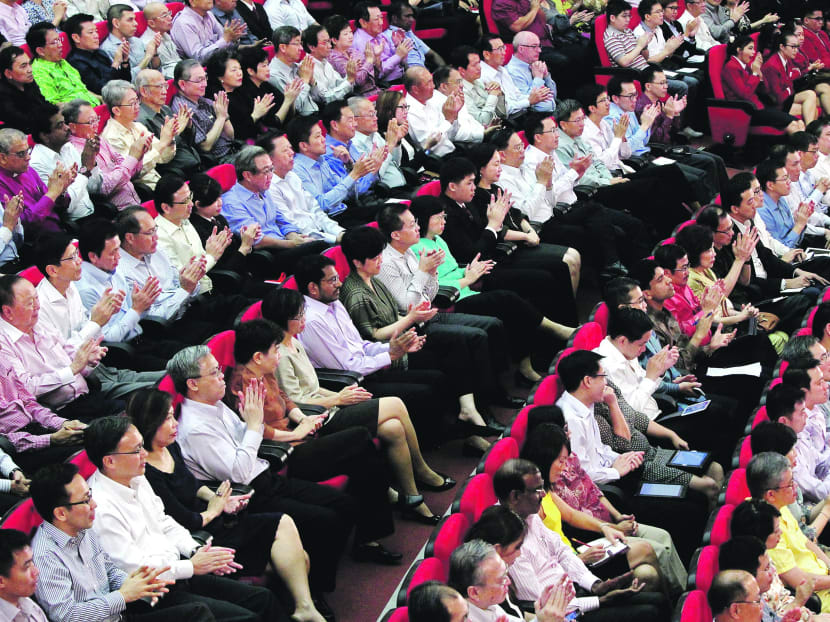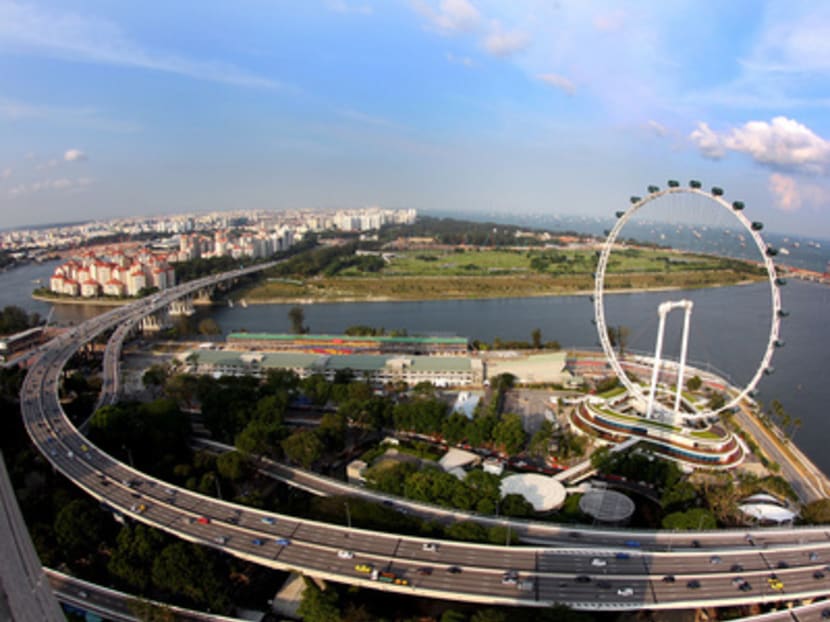At the threshold of a new Singapore
In what is probably his most important National Day Rally speech yet, Prime Minister Lee Hsien Loong outlined a vision for Singapore that epitomises opportunity, hope, fairness and social solidarity. It marks a new direction in governance, and will form the basis of a strategic reconceptualisation of Singapore’s future and how we will get there.


In what is probably his most important National Day Rally speech yet, Prime Minister Lee Hsien Loong outlined a vision for Singapore that epitomises opportunity, hope, fairness and social solidarity. It marks a new direction in governance, and will form the basis of a strategic reconceptualisation of Singapore’s future and how we will get there.
In particular, Singapore’s search for the right balance in terms of role of the state, community and individual at a turning point in our history is crucial.
Mr Lee stressed that the community and Government must do more to support individuals; he pledged that the Government will do more to give every citizen, especially the low-income, a fair share in the nation’s success. Social safety nets will be strengthened, and more will be done to leaven our hard-nosed meritocracy.
While economic vibrancy remains essential to our well-being, the Prime Minister recognised Singaporeans’ growing desire for a home with heart and hope — that Singapore must engender within Singaporeans a deep sense of identity, belonging and rootedness to this place we call home.
NOT CHANGE FOR CHANGE’S SAKE
The slew of policy shifts entailed a radical rethink of fundamentals that have served us well, and the changes have been more than two years in the making.
It has been slightly over two years since the bruising May 2011 General Election and a year since the commencement of Our Singapore Conversation (OSC). Mr Lee’s speech is seen as an indication of how well the Government has consulted Singaporeans, primarily through the OSC platform — and more importantly, how it has sought to respond to their concerns, fears and aspirations.
A week earlier, Emeritus Senior Minister Goh Chok Tong spoke of Singapore as being at an inflexion point, where changes are needed to avoid a “mid-life crisis”. Indeed, Singaporeans desire a fundamental re-think of how Singapore has been governed — a re-calibration of state-people relations, as well as getting the balance right on (economic) value vis-a-vis values that define Singapore.
There will certainly be the view that the changes could be much bolder and quicker. But in ringing the changes, it is also crucial that there is no alienating effect.
Even a fundamental relook of policies that have served us well should not prompt us to throw the baby out with the bathwater. It should not be change for change’s sake; indeed, it will take a while to imagine and become accustomed to a good life that is based on rather different values to those of the past.
GROWTH FOR SOCIAL JUSTICE
Singapore Inc’s hedonistic treadmill, with its emphasis on economic value, affluence and consumption, must now compete for mind-share with the growing importance of transcendental pursuits, values and quality of life.
In many respects, Singapore faces its first significant post-material challenge since independence: The existential introspection of “what does it mean to be Singaporean?” and “what does Singapore stand for?”.
It is how we deal with and answer these aspirational concerns that will determine Singapore’s future. The subtext of Mr Lee’s speech is that in defining our society, our shared values must discipline and enhance our shared purpose. GDP growth is a means to an end — but it must also serve social justice.
Even as we await further details of the policy changes, it is clear that the Government’s tight-fisted approach has made way for more government expenditures on what are increasingly being seen as social rights in a 21st century Singapore: Assurance of affordable quality health care and public housing. They will go a long way in reducing the anxieties of Singaporeans.
Yet beyond the announcements on the individual issues that are of deep concern to Singaporeans, Mr Lee’s articulation of how the social compact will be right-sized is very crucial. How do we manage the competing, and even conflicting, interests in the quest for a fair and just society?
A CRITICAL RECALIBRATION
Mr Lee’s refreshed approach to nation-building requires a recalibration of the roles of the individual, the community, and the State — whether it is about strengthening social safety nets, or re-defining success beyond academic achievements, or the successful helping the less successful.
This endorsement of co-creation, a combination of togetherness, self-reliance and resourcefulness, is timely. For a more caring and humane Singapore, individualism will need to co-exist with the communitarian spirit.
Will these policy shifts revitalise society, or will they sow the seeds of eventual decline? This has to be considered against a global context of many other nations — be it the United States, China or the Scandinavian states — also now doing their own recalibrations of the rights and responsibilities of the State, society and individual.
The traditional governing principles of free market individualism, socialism and welfare statism have been challenged by ageing populations, widening income gaps, globalisation, unemployment, economic turmoil, a more mobilised citizenry and other 21st century trends. Like every other country, Singapore will have to find its own unique equilibrium.
We are well-placed to shift towards a heavier responsibility on the part of the State and the collective.
But Mr Lee’s caution on healthcare costs reminds us how even well-intentioned public policies to enervate society can result in trade-offs and costs. This requires that we look, with eyes wide open, for a new and sustainable balance between self-reliance and social support.
Mr Lee’s speech, in short, is a clarion call for a fundamental re-booting of the social compact. There can be no turning back. Will Singaporeans rally behind him, his Government and fellow citizens as the country moves into uncharted waters? Where will this new course take us in 10, 20 years?
The Prime Minister seeks to reignite the passion and imagination of Singaporeans, as then-Prime Minister Lee Kuan Yew did at another make-or-break juncture in nationhood — when independence was thrust upon Singapore 48 years ago. Protecting our precious inheritance will require us all to act in faith and as one.
ABOUT THE AUTHOR:
Eugene K B Tan is an associate professor of law at the Singapore Management University School of Law, and a Nominated Member of Parliament






